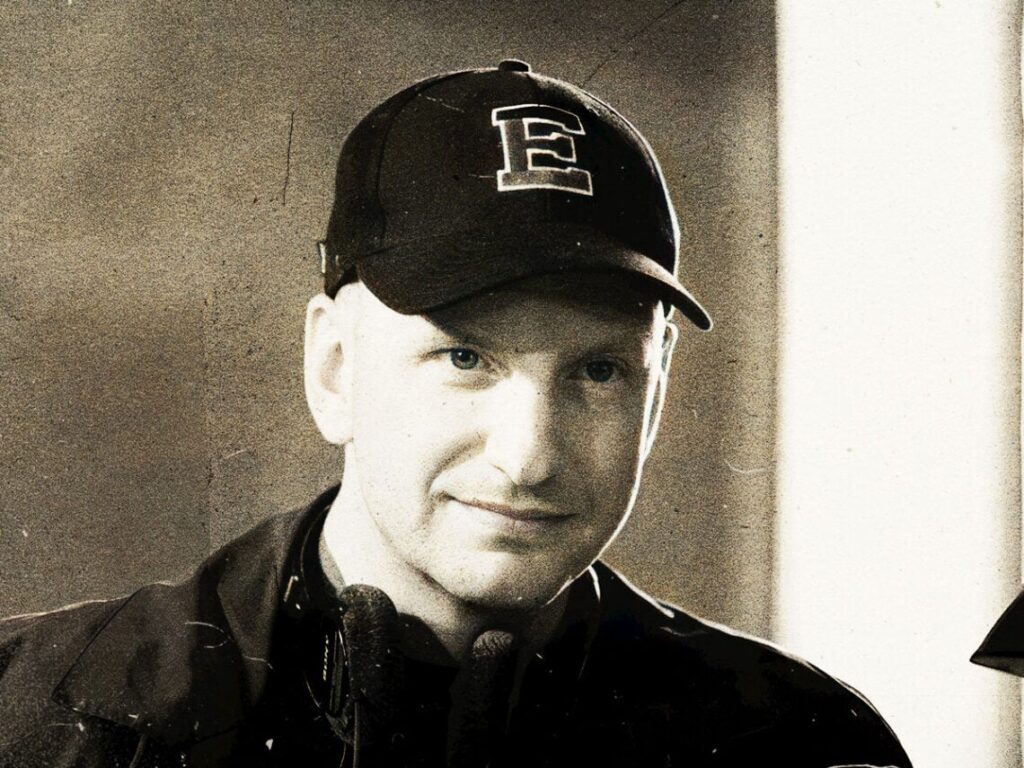Getting personal: How Steven Soderbergh altered the course of independent cinema in the 1990s
 Posted On
Posted On
(Credits: Far Out / Alamy)
Back in 1989, Steven Soderbergh became the youngest solo director to win the Palme d’Or at the Cannes Film Festival at the tender age of 26. The future director of Erin Brockovich, Traffic and the Ocean’s trilogy had just made his directorial debut with the eternally memorable and widely impactful independent drama Sex, Lies, and Videotape, which announced the young filmmaker as a seriously significant name in the American indie cinema circuit.
In fact, Sex, Lies, and Videotape practically singlehandedly revolutionised the independent film movement of the following decade, proving that commercial and critical success could be achieved on a modest budget. The film focuses on a handful of interconnected characters in Baton Rouge, Louisiana, including James Spader’s Graham, an emotionally repressed man who finds comfort in videotaping women discussing their innermost sexual fantasies.
One such woman is Andie McDowell’s Ann, whose husband is having an affair with her sister. As the film unfolds, Graham’s peculiar approach to sexuality invites the other characters to question their desires and psyches, leading to a series of emotional revelations and breakdowns. Soderbergh delivered a provocative drama that dove headfirst into the most taboo frontiers of human relationships, identity and sexuality.
Many figures in the film industry consider Soderbergh’s film to be something of a seminal moment in independent cinema, with the widespread commercial success of Sex, Lies, and Videotape proving that indie movies could be a booming business in their own right. Distributed by Miramax and premiered at the Sundance Film Festival, the now-stalwarts of indie cinema had barely been heard of at the end of the 1980s, but following Soderbergh’s movie, they shot into their very own respective stardoms.
Soderbergh remarkably wrote the script for Sex, Lies in just eight days, although it had invariably been informed by a series of difficult relationships he had been in during his early and mid-20s. “I drove the most important woman in my life to leave because I didn’t want to be in the relationship but couldn’t just say, ‘I don’t want to be in this. I want to be out of it,’” Soderbergh had once told Film Comment. “There was nothing wrong with the person that made my life uncomfortable; I just wasn’t ready to deal with the responsibility.”
Following the screening at Sundance, it was shown that independent movies could compete with so-called Hollywood blockbusters and the film industry was eternally changed, particularly through the 1990s when filmmakers like Quentin Tarantino, Kevin Smith, Paul Thomas Anderson, the Coen brothers and Jim Jarmusch benefitted from the newfound positivity shown to indie works of film.
Outside of the commercial qualities of Sex, Lies, and Videotape, though, the film detailed a frank, unapologetic exploration of sexuality and desire in a way that utterly opposed the focus on physical acts of intimacy shown in big-budget Hollywood movies. By contrast, Soderbergh explored the moral and social implications of sexuality, which opened up conversations about human relationships and gender dynamics.
Intense set pieces were not required for such a narrative with intelligent, realistic dialogue, well-paced character development and minimalist production. It was only natural that critical acclaim would come Soderbergh’s way following the release of Sex, Lies, and the commercial addition was merely a healthy bonus, even if it played a significant hand in the future of independent cinema itself.
Soderbergh’s debut was undoubtedly a watershed moment in the history of the cinematic medium, serving as a pivotal work that not only proved the commercial capabilities of lower-budget movies but also that authentic narratives could provide just as much emotional and thematic intrigue as their studio counterparts.
The director naturally sought to strike gold twice or even thrice throughout the 1990s, continuing to deliver his intensely personal style of filmmaking in the likes of Kafka, King of the Hill and The Underneath, but none seemed to capture the attention in both critical and commercial terms in the way that Sex, Lies, and Videotape had.
Seeing as Sex, Lies, and Videotape achieved such success, it came as no surprise to see where Soderbergh’s career headed after its release. Many of his subsequent films had several times the budget of his debut and yet primarily failed at the box office, showing that perhaps there was magic in his debut and a fearless kind of confidence that invariably comes from being the new kid on the block.
Eventually, Soderbergh was handed a big budget for 1998’s Out of Sight, the first of many collaborations between the director and George Clooney, and the Elmore Leonard adaptation saw widespread critical success and a generous box office to boot. Suddenly, Soderbergh had his new calling as a blockbuster director, mostly leaving his indie roots behind. Erin Brockovich and Traffic were swiftly followed by Ocean’s Eleven and Solaris, with Soderbergh handing over the reins of independent cinema to younger and newer talents.
From there, the course of 1990s independent cinema was changed forever. It’s hard to believe that movies like Vincent Gallo’s Buffalo ’66 would have ever arrived were it not for Soderbergh’s debut, another film that also fearlessly explores the intricacies of intimate relationships. Elsewhere, Soderbergh had a significant influence overseas and in other genres, too. Peter Cattaneo’s iconic British comedy The Full Monty certainly enjoyed the vibrant new interest in independent film, while Daniel Myrick and Eduardo Sanchez’s indie horror film The Blair Witch remains one of independent cinema’s greatest success stories.
So, not only did Soderbergh deliver a fascinating narrative that dives into the deepest taboos of relationships and sexuality, but he also proved that independent cinema was a medium that was around to stay. In that light, the 1990s and indie film at large owes an incredible amount to Sex, Lies, and Videotape and to the man behind its brilliance.
[embedded content]


